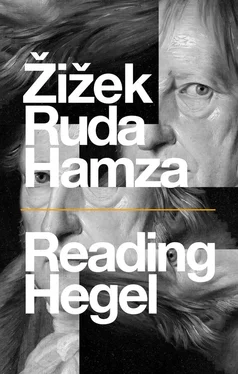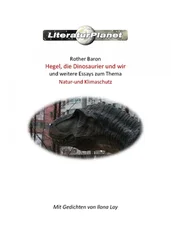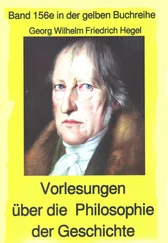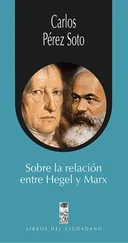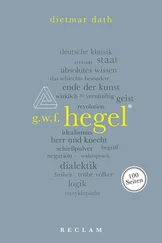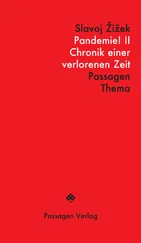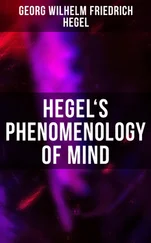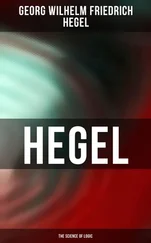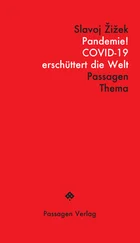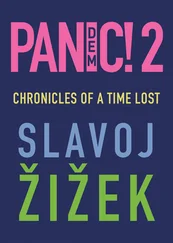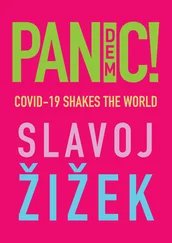The dialectical intricacy to which Adorno is pointing does have a direct relation to a difficulty that Hegel himself pointed out at the beginning of the Phenomenology of Spirit : any “right now” comes with its inner dialectic that one can reformulate like this: as soon as we try to capture what we mean when we say “now,” now is not “now” any more. What seemed so evident and undoubtedly true and certain at first sight – now – proves to be essentially not what we expected it to be. That one therefore must question the assumption of stable distinctions (for example between life and death, as one assumes conceiving of them in natural and biological terms alone, or between the past as what happened before and the present as what is here right now) in general. This is one way of reformulating one fundamental law of the Hegelian dialectic, namely that “one divides into two,” as it was once rendered much later. Such formal(ized) and therefore abstract renderings of what we refer to as Hegel’s or the Hegelian “dialectic” then certainly and immediately also apply to their own product: “one divides into two” applies to each one produced by the first splitting of the one. The two sides that result from the originary division destabilize repeatedly, and everything that appears solid, from this perspective, melts into air. But this also means that things can revert from one to the other: there can be something undying in the thought of the dead – which can, but mustn’t be good – as well as something deadening in what seems most lively (including life itself or vitalism). As Brecht once remarked vis-à-vis Hegel’s dialectic (as presented in his Science of Logic ): two concepts – very much as the two sides mentioned above – are separate, yet welded together: “they fight each other … and enter … into pairs, each is married to its opposite … They can live neither with nor without each other.” 8This is the “ dialectic which ” each side “possesses within itself ” – it is what “moves the subject forward” [ der Gang der Sache selbst ], “the going or passing of the thing itself.” 9
If in dialectical spirit, one inverts the spontaneous(ly tempting) perspective on Hegel and starts looking at our present, including at its past (thus even at Hegel) as well as our present’s (conception of the) future with Hegelian eyes – Hegel thereby becoming “die Sache selbst,” – one necessarily transforms one’s gaze. One looks in a circle (of circles) and might potentially end up forming a Borromean knot, or even a Klein bottle, 10both images that Hegel did not know, but could have liked. The latter always argued that philosophy deals not with “what is dead, buried and corrupt,” but with the “living present.” 11To look at Hegel’s thought with eyes trained to see in this way, means to look at what his philosophy allows us to see in today’s world and proves Hegel’s dialectical contemporaneity. Hegel is with us – as the “absolute is with us … all along” 12– in what his thought allows us to see in and of the present. What can it make us see? This is what we seek to find out in the following by reading Hegel. By reading Hegel as a reader of our contemporary situation; by reading Hegel as a reader of the readers of Hegel; and by reading Hegel as a thinker whose thought is equipped to intervene into the most burning questions not only of contemporary philosophy, but of contemporary socio-collective practice. Hegel assigned to art, for example, the capacity to make visible such invisible structures. In 1826 he remarks that the “semblance [ Schein ] of art is a much higher and truer form of the real than that which we are used to call reality.” This means that art allows us to see what makes reality tick, the dividing dialectical motors that determine it, “the powers at work in it.” 13Philosophy, for Hegel, has the same content as art has, but it presents it in a different form. It is this presentation that we will explore in the following.
This will happen in three instalments: Slavoj Žižek will defend the thesis that Hegel is the philosopher most open to the future precisely because he explicitly prohibits any project of how our future should look. This becomes manifest in the Preface to Hegel’s Philosophy of Right , with the Owl of Minerva, which takes off at dusk. Philosophy can only paint “gray on gray,” i.e., it only translates into a “gray” (lifeless) conceptual scheme, a form of life that has already reached its peak and entered its decline (is becoming “gray” itself). From this we can infer that we should reject all those readings of Hegel that see in his thought an implicit model of a future society reconciled with itself, leaving behind the alienations of modernity – Žižek calls them the “not-yet-Hegelians.” In this regard, the first chapter engages systematically with Robert Brandom’s masterpiece The Spirit of Trust, i.e. the position one of the most prominent “not-yet-there Hegelians.” And it demonstrates in what way Hegel has already moved beyond any such form of transcendental pragmatism.
Frank Ruda’s contribution examines the Hegelian concept of nature against the background of two features specific to the present philosophical conjuncture:
1 The widespread contemporary tendency to present naturalizing readings of Hegel and
2 The equally widespread return of philosophies of nature to the contemporary philosophical scene. The chapter shows by drawing on a variety of different (anecdotal, systematic, didactical, and biographical) material why it is precisely Hegel’s concept of nature that forces us to avoid all types of naturalization.
Agon Hamza in the third and the final chapter takes up the problem of Hegel’s materialism. It begins with the claim that it is not Hegel who requires a materialist reversal but Marx. It develops a Hegelian critique of Marx. It formulates a discussion of the (ir)religious criticism in Marx and Hegel’s readings of Christianity. The problem of the state remains one of the most important topics in the contemporary debates of the Left. Clearly, Marx and Marxism in general failed to outline a theory of the state different from that of capitalist form. The contemporary Left, predominantly, wants to do away with the state tout court , but without having a general idea of how to organize the society in its basic levels, even when faced with the serious challenges that call for universal cooperation. Therefore, the return to Hegel’s theory of the state offers us the possibility of conceptualizing a vision of a “non-statal state” as a political possibility.
What is a Hegelian account of a present that has ultimately become (somewhat) Hegelian (in philosophy)? We are well aware that this book does not exhaust or fulfill its self-set task, yet we assume that the three chapters can nonetheless stand – in very Hegelian fashion, almost as a concrete universality – to produce an insight into Hegel’s universality and contemporaneity, so that it becomes visible that Hegel has been with us all along. If this attempt generates further critical and harsh discussions among the friends of Hegel, this work will have served this end even more successfully. The aim of the present book is neither simply to assert the relevance of Hegel’s thought, nor only to explore the ways in which one can and maybe should be a Hegelian today, but also to depict why it is precisely Hegel who provides a major point of orientation and conceptual tools for understanding the present world as it is.
You will find in the following three attempts to avoid the arrogant position that we deem Adorno rightly criticized. But what does this mean? For us, it means you will get three attempts to treat Hegel as our contemporary, and with whom we attempt to look at the present, since we believe that his theoretical eyes can help us see what otherwise remains invisible, in the present as well as to the naked eye. Be prepared, you will get three attempts to look with Hegelian eyes through Hegelian glasses.
Читать дальше
